Rugby Posts on Crowch
From April 10 to 13, 2025, in Augusta, Georgia (USA), one of the most iconic tournaments in the world of golf will take place — The Masters. First played in 1934, The Masters is one of golf’s four majors and is distinguished by its unique atmosphere, traditions, and symbolism.
The Symbol of the Green Jacket
Victory at The Masters is more than just a trophy — it is a piece of golfing legend. The champion receives the famous green jacket, a symbol of belonging to the elite of world golf. For many players, slipping on that jacket represents the pinnacle of their careers and the fulfillment of a lifelong dream.
Augusta — The Heart of the Tournament
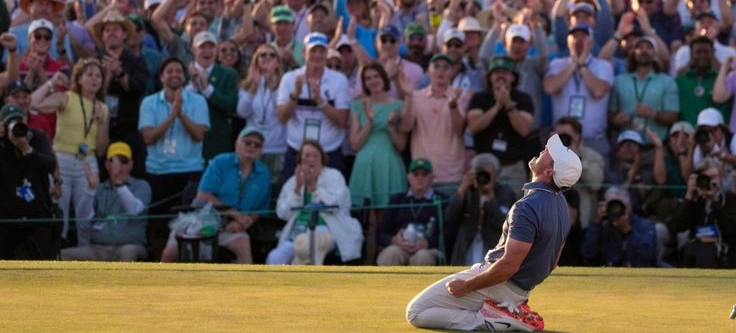
The Augusta National Golf Club is one of the most beautiful and recognizable courses in the world. Blooming azaleas, immaculate fairways, and legendary holes such as Amen Corner turn every round into a work of art. Each shot tells a story, and every Masters adds a new chapter to the sport’s rich history.
The Storylines of 2025
The Masters 2025 promises intense competition. Rising stars will seek to prove themselves on golf’s grandest stage, while seasoned champions will aim to cement their legacies with another triumph. The field will include the best from the PGA Tour and European Tour, as well as past major winners, ensuring a showdown of the highest level.
Traditions and Atmosphere
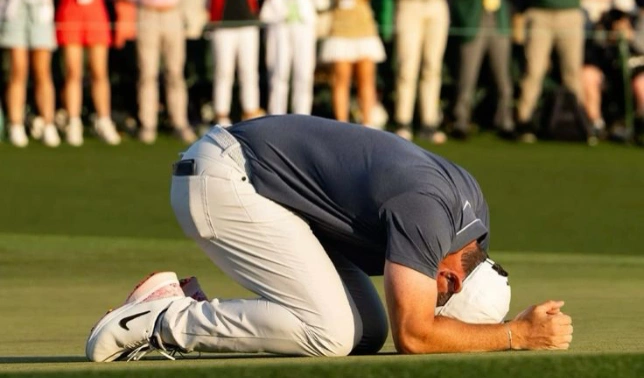
The Masters is renowned for its timeless traditions: the ceremonial awarding of the green jacket, the Champions Dinner, and the friendly Par 3 Contest held on the eve of the tournament. These customs give the event a sense of intimacy and heritage, making it unlike any other tournament in the world.
Global Significance
Broadcast to millions of viewers worldwide, The Masters is more than a sporting contest — it is a global cultural event. For golf fans, it sets the tone for the season. The winner at Augusta becomes not only a champion but also a part of golfing history, forever linked to the legends who came before.
✨ The Masters 2025 is more than a tournament. It is tradition, prestige, and the spirit of greatness, where every shot has the potential to become legend.
In the 21st century, sport and culture have become more than just entertainment. They have turned into a universal language of communication between nations. Every major event — from the Olympic Games to the World Cup, from the NBA Finals to the Esports World Cup — acts as a cultural bridge, connecting people across borders.
🏅 Sport as a Universal Language
When athletes compete, millions of fans around the globe feel the same emotions — excitement, pride, and joy. This is the true power of sport: it speaks to everyone without words.
Global tournaments bring together people of different languages, beliefs, and traditions. Sport becomes a shared experience, reminding us that we are united by the pursuit of excellence and the thrill of competition.
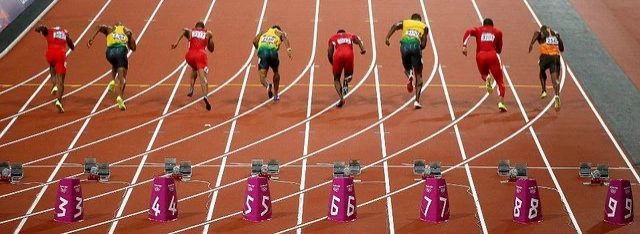
🎶 Art and Culture Within Sport
Modern sport blends seamlessly with culture. Olympic ceremonies combine music, dance, and technology into unforgettable spectacles. Sports like figure skating or artistic swimming are performances where athleticism meets artistry.
Fan culture also plays a key role: cosplay in esports, halftime shows at NFL games, and concerts during NBA finals all transform competitions into cultural festivals. Fans become participants, not just spectators.
🌍 A Tool for Understanding

In today’s world, sport and culture are bridges of understanding. Games in London, Paris, or Tokyo are not only competitions but also opportunities for cultural exchange.
When the NBA plays in Abu Dhabi or Australia, it’s not just about basketball — it’s about introducing traditions and building dialogue. When the NFL hosts games in Brazil or Ireland, it becomes part of local culture while sharing its own heritage.
📈 Economy and the Future
Such events also boost tourism, create jobs, and strengthen international ties. But their most lasting impact is cultural: they foster friendship, respect, and mutual understanding across borders.
✨ Conclusion
A cultural bridge is not an abstract concept but a reality of today. Sport and culture give us a chance to see what unites us, not just what divides us. When we cheer for the same game, enjoy the same performance, or share the same excitement — we become closer than ever.
The Women’s Rugby World Cup 2025 became one of the most anticipated sporting events of the year. Held in England from August 22 to September 27, it not only marked the 10th anniversary of the tournament but also represented a new stage in the development of women’s sports.
For the first time, 16 teams competed. This expansion allowed more nations to showcase their talent and increased public interest. From Sunderland to London, arenas were filled with tens of thousands of fans, and the grand final at Twickenham was a true celebration of rugby.
The motto of the championship, “This Energy Never Stops,” perfectly captured the essence of the tournament: passion, resilience, and an unstoppable drive for victory.
📈 Rising PopularityTicket sales exceeded 375,000 — a record-breaking figure showing that women’s rugby is capturing the hearts of millions and becoming a major part of global sports culture.

🌍 Global ReachThe 2025 edition highlighted the sport’s international growth. Brazil made its World Cup debut, symbolizing rugby’s expansion into Latin America. Teams from Africa and Asia added even more diversity, paving the way for future generations of athletes.
💪 Power of InspirationThe tournament inspired young girls worldwide. Strong, determined, and charismatic athletes became role models, proving that sport builds confidence, leadership, and opportunity.
⚡ Commercial SuccessWomen’s rugby has become a rising force in the sports economy. Sponsorships, media coverage, investments, and record broadcast numbers show that the game is not only thrilling but also commercially sustainable.

✨ ConclusionThe Women’s Rugby World Cup 2025 was more than a tournament — it was a statement about equality, inspiration, and the unstoppable energy of women’s team sports. It is now clear: women’s rugby has entered a golden era, where the energy never stops.
The Women’s Rugby World Cup 2025 became a landmark event. The tenth edition was held in England from August 22 to September 27. For the first time, the tournament expanded from 12 to 16 teams, marking the rapid growth of the women’s game.
Matches took place across eight cities, from Sunderland to London. The opening match was held at the Stadium of Light in Sunderland, while the grand final was staged at the iconic Twickenham Stadium, highlighting the prestige of the competition.
The theme of the tournament, “This Energy Never Stops,” symbolized the determination of women athletes and the unstoppable momentum of the sport. Over 375,000 tickets were sold, with many games played in front of packed stadiums.

The championship opened with a spectacular performance by England, who defeated the USA 69–7 in front of 43,000 fans and millions of viewers worldwide. While some early matches revealed a gap in team levels, organizers emphasized that such tournaments help close those gaps, with the knockout rounds promising thrilling contests.
The commercial strength of women’s rugby was also evident. Revenues from the tournament approached the billion-dollar mark, with growing interest from media, sponsors, and investors. World Rugby launched a growth strategy focused on expanding the fan base, supporting players, and promoting women’s rugby globally.
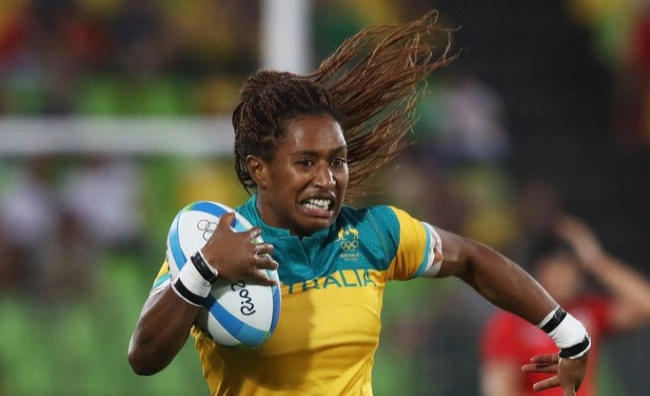
The 2025 tournament also marked a breakthrough for new regions. Brazil made its debut, showcasing the inclusivity of the sport and paving the way for future participation from more nations.
Key outcomes of the 2025 World Cup:
- A successful milestone edition with an expanded format.
- Record public interest and strong commercial appeal.
- Inclusion of new regions and nations in global rugby.
- Further recognition of women’s sport as a powerful and inspiring force.
The 2025 Women’s Rugby World Cup proved that women’s rugby has entered a golden era — an era of growth, equality, and inspiring achievements.
Sport in 2025 continues to transform rapidly under the influence of technology, globalization, and changing audience expectations. This year has become a milestone for innovations, the rise of women’s sports, and the emergence of new hybrid formats like phygital competitions.
🚺 Women’s Sports: Unprecedented Growth
Women’s leagues are experiencing record expansion — from 3x3 basketball to professional hockey and baseball. Events such as the Women’s Rugby World Cup attracted over 375,000 spectators, and revenues in this sector are expected to surpass $2.35 billion in 2025. A passionate fan base, active investments, and global recognition are turning women’s sports into a sustainable movement.
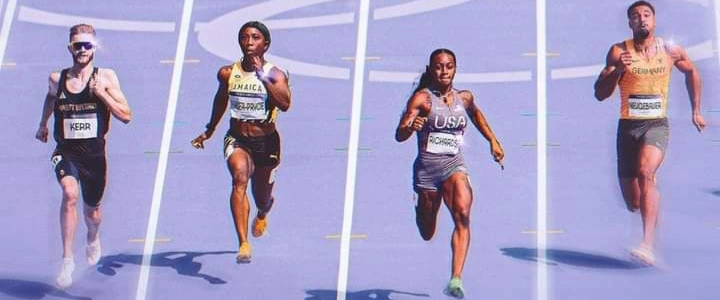
🤖 Technology: Revolutionizing Fan Experience
Sport is becoming more digital. Leagues now use artificial intelligence for strategy and personalized content. Fans can choose camera angles, commentators, and interactive experiences through cloud-based broadcasts. ATP’s collaboration with TikTok brings behind-the-scenes moments to millions, creating new levels of engagement.
🎮 Esports, Phygital, and New Formats
Esports has reached new heights: the Esports World Cup 2025 in Riyadh set a record prize pool of $71.5 million. Meanwhile, phygital competitions — combining virtual and physical sports — are gaining traction. The Games of the Future 2025 in Abu Dhabi will include disciplines like phygital football and phygital dance, showing how digital and real worlds merge.
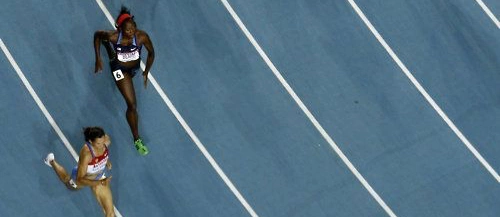
🌍 Global Championships and Olympic Innovation
The 2025 World Aquatics Championships will take place in Singapore for the first time, highlighting the Asia-Pacific region’s rising role. The World Athletics Championships 2025 return to Tokyo, reinforcing Japan’s strong sports identity. Olympic modern pentathlon is being reshaped with obstacle-course racing instead of horse riding, to remain relevant for LA 2028.
💰 Commercialization, Media, and International Reach
The NFL is going global — staging games in Ireland, Australia, Spain, and Germany — aiming for $25 billion in revenue by 2027. New projects like the Baller League (6x6 football designed for TikTok audiences) attract private investors and sports stars. Formula 1 continues its boom thanks to Netflix’s Drive to Survive, fashion tie-ins, and celebrity culture, turning racing into both sport and lifestyle.
✨ Sport in 2025 is a year of strong shifts:
- Women’s sports become a powerful cultural and commercial force.
- Technology transforms fan engagement and content consumption.
- Hybrid formats (esports, phygital) expand the boundaries of competition.
- Global leagues and events open new markets, uniting international fans.